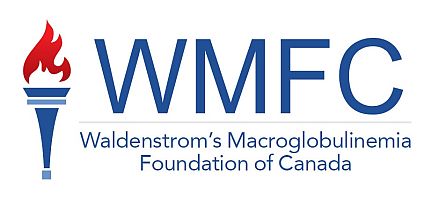This first article in our new, Canadian-focussed series, explores an important new WM clinical trial that is now up and running in Canada. This trial presents a unique opportunity for previously untreated WM patients who now require treatment for the first time. As a Canadian WM clinical trial, there are no trial costs associated with it for the patient.
This trial is headquartered out of Sunnybrook Health Services Centre in Toronto, and the principal investigator is Dr. Neil Berinstein, who is well known and respected within the WM community. The trial is also now running at BCCancer in Vancouver. Halifax , Ottawa, Calgary, Quebec City and Montreal are expected to follow soon.
In a nutshell, this is a Phase 2 clinical trial for previously untreated WM patients. Phase 2 means that the clinical trial activity of this novel combination therapy is being assessed. All of the drugs have been safety tested in Phase 1 trials and in fact are approved for various indications by Health Canada. The trial uses Bendamustine (B), Rituximab (R) and Acalabrutinib (A), hence the trial name, BRAWM. A detailed summary can be found at the clinical trials registry, clinicaltrials.gov. The direct link to the trial is https://clinicaltrials.gov/ct2/show/NCT04624906. And you can hear Dr. Berinstein discuss the trial and its rationale in this recording of our National Zoom meeting, earlier in 2021.
The combination of Bendamustine and Rituximab has been a game changer in the treatment of WM. Both are delivered by IV infusions in a hospital setting although, more recently, Rituximab has more conveniently been administered subcutaneously. Previous treatments such as CVP-R usually achieved complete response (CR) in the 4-6% range for WM patients. BR pushed that to a level approaching 20%. BR is now the gold standard first line treatment for WM in Canada.
The other fast rising stars in WM treatments are BTK inhibitors, Ibrutinib being the first and most widely used of that class. While highly effective in WM, Ibrutinib can have serious side effects including cardiac and increased bleeding risks. Acalabrutinib is a second generation BTK inhibitor that may have fewer cardiac and bleeding side effects. It is approved as a front line monotherapy for Chronic Lymphocytic Leukemia (CLL) and recurrent mantle cell lymphoma. It is administered at home, in pill form, twice a day. As used in this trial, that treatment will continue for a year after treatment in the BRAWM trial commences. It is the intent of the BRAWM trial to demonstrate that by combining these drugs, the CR % can be raised even higher and hopefully extend the time until disease progression.
Exciting “translational” studies will arise from this trial. All 59 patients in this trial will have their mutational profiles analyzed by “next generation sequencing”, a highly advanced sequencing technique that will allow the investigators to analyse genetic mutations before the commencement of treatment, and throughout the trial. This will give detailed information that may push forward the efficacy of future treatments.
As well, minimal residual disease (MRD) analyses will be performed. Complete remission (CR) is the goal of all treatments even though achievement of CR is not curative. But the definition of CR is based on visually microscopic and IgM tests that cannot find the presence of WM even though some WM cells remain. Advanced analytical techniques now exist that are 100 times more accurate than old CR techniques. The MRD analyses are designed to attempt to find the ideal length of treatment time with acalabrutinib.
Finally, we have a world class WM clinical trial in Canada that is truly cutting edge.
